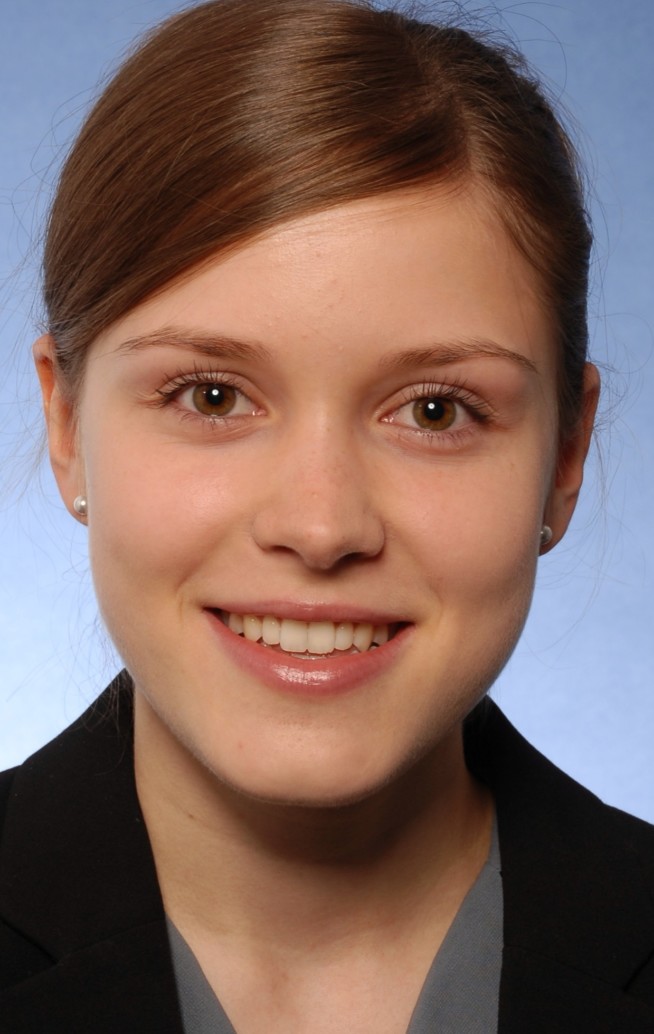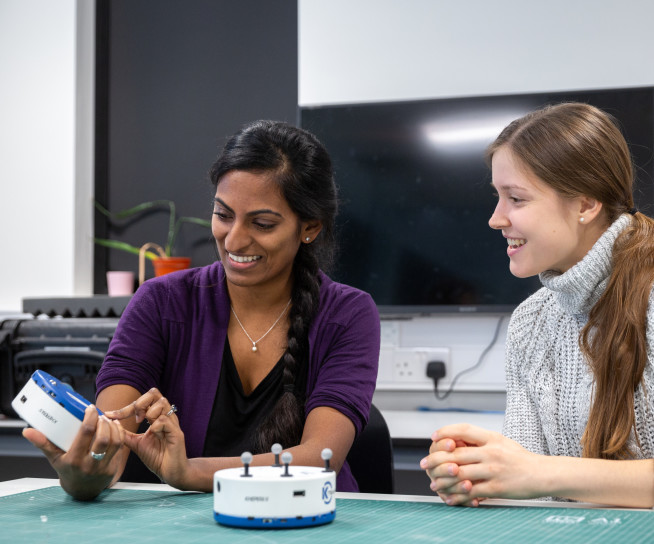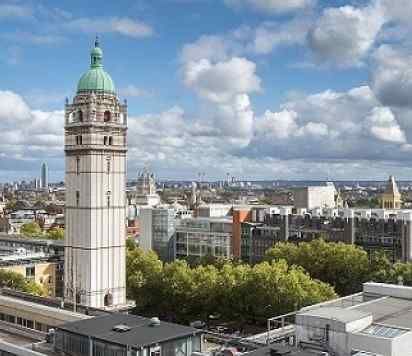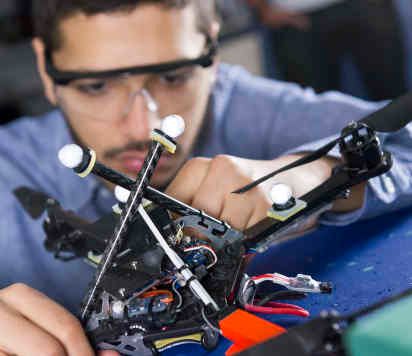Benita's research focuses on Control design with limited information: learning from data.

"Before starting my PhD in 2019, I studied towards my MEng in Aeronautical Engineering, which was also at Imperial. I have always been fascinated by everything that can fly, so Aeronautics seemed like the most natural choice for a course to study for my undergraduate. While I enjoyed all aspects of it, I increasingly gained interest in control theory – my current area of research – through classes and projects. For my final year project, I had the chance to do an external placement in Professor D’Andrea’s research group at ETH Zurich working on a control algorithm for a quadcopter drone, which combines iterative learning and predictive control. This further increased my interest in doing a PhD in control."
Research and applications
"My research explores the role of information in control design and addresses the question of how to overcome lack of information, with particular focus on networked systems, i.e. systems which consist of multiple interconnected subsystems. The objective is to develop systematic methods to design controllers with stability and performance guarantees based on limited available information. My project addresses this challenge by combining methods from dynamic game theory, which provides tools to model the interaction of strategic decision-makers, and direct data-driven control, in which unknown system information is parameterised directly using measured data."
"The beauty of control theory is that it has applications everywhere. Many aerospace systems are complex and consist of multiple subsystems. Extreme operating conditions and strict safety requirements make control design indispensable and at the same time challenging, so there are many possible applications for my results here. However, control applications are ubiquitous and currently I am paying special attention to robotics applications."
"Before starting my undergraduate degree, I did a year in industry placement, which I really enjoyed. So at the start of my degree I was very industry focussed and just wanted to get my MEng out of the way. However, I really enjoyed the fast pace and challenging nature of the university environment and realised that this appeals to me more than the work environments I experienced and observed during my summer internships in classical engineering roles, so I started considering a PhD. Ultimately, I was just keen to continue learning and challenging myself and PhD studies provided the perfect opportunity to do so. Having the chance to contribute to new knowledge and to play a part in developing the next generation of control design techniques is extremely exciting."
"I believe that automation and control will play a crucial role in future advances in the aerospace industry - from smart manufacturing to autonomous flight. In my opinion, conducting research on control design is the best way to have a lasting impact and this is what I would love to do beyond my PhD. I particularly value the opportunity that research provides to work on complex problems in original ways while being part of the vibrant and diverse academic community."
PhD life
"What I enjoy most about the PhD is the independence and the working environment. It is great to be able to manage my own time and for example spend an entire day just reading about something I am really interested in, and to immerse myself in complex problems or attend lectures or seminars. Ultimately, as a PhD student, you are in charge of your project, which is both daunting and very rewarding. Everyone around me, in particular my supervisor Dr Thulasi Mylvaganam, is very supportive and encouraging. Imperial is full of incredibly smart people, which creates an environment that inspires you to do your best."

"Things don't always go to plan, and unfortunately this is part of the very nature of research. Working on a problem for weeks without seeing any noticeable progress can be frustrating and it can be difficult to keep up the motivation. However, when the results finally come together, or the simulation finally works as expected it feels even more exciting and satisfying. Dealing with and learning from these feelings of failure and stagnation will probably be some of the most important life skills to take away from the PhD."
"I would advise my younger self to be more confident and to tell people about her ambitions and aspirations. Networking is super important and a great way to get advice, inspiration and to find the right opportunities."
London
"London is an amazing place to live, I absolutely love it here! The fact that I chose to stay for another three and a half years after my MEng says it all. There is always something to do, whatever your interests are. I also enjoy being able to get a taste of foods and cultures from all over the world without leaving London. However, it is surprisingly easy to get into nature if you need a break from the city. The only thing I really miss in London is being close to the mountains."
"The high rent and living costs in London are a bit frightening, but to be honest, it will never be as affordable to live in London as when you are a student and have access to student discounts, council tax exemption for instance, and so far I have not had issues covering my expenses with the PhD bursary."


